Little C begins school this year and we are so excited for her yet quite sad that her baby/toddler/pre-school days are over. She has blossomed and bloomed so much and we will miss spending so much time with her. However, she is one of the older ones of the school year being born in October, so is very much ready to begin school and get learning! She is most looking forward to making new friends and learning lots of new things. I decided to write a list of things we can do as parents to get our children ready and prepare them for starting primary school.
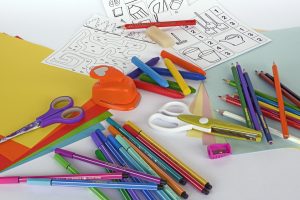
1. Set out Behavioural Expectations
This may seem a little harsh, but hear me out. Children who haven’t been to school yet may not have got used to ‘toeing the line’. In my opinion, I think it is a good idea to set out behavioural expectations so they know what is right and wrong at school. - Encourage your child to follow simple instructions.
- Explain what happens at school with regards to getting into lines and queuing (this is quite an easy one to set out if doing any supermarket shopping).
- The teacher will want children to sit and listen, so it’s a good idea to explain to your child why they need to sit and listen. We use a manners book to illustrate this too. It is polite to sit down quietly and listen to the teacher so you are kind and respectful and also so you can hear what they are trying to teach you!
- Play lots of games to encourage and practise sharing and turn-taking. This will be an important skill when sharing a classroom and doing activities with many other children!
- Help your child develop empathy and become sensitive to other people’s feelings and also explore their own. We read a book called ‘The Three Grumpies’ (which featured on our 10 recommended books for toddlers and pre-schoolers) and ‘I have feelings’ which are great for explaining how we’re feeling. If someone is sad and lonely in the playground, why not try to be-friend them? If you are mean to someone or they are mean to you, how do you feel and what should you do?
2. Communication & Language
Your child will need to communicate with teachers and their friends. You can encourage your child by talking with them lots and also reading stories together.
- Make sure your child has the confidence to speak to his/her teachers. Jessica (Beauties & The Bibs) says: ‘I think we focus a lot on what they should be able to do but they need to be mentally ready for school as well.’. Your child should feel comfortable to talk to their teacher and others both alone and in a group.
- Understand stories and retell them. This is a fantastic skill to have. It also helps for them to understand the concept of time – past, present and future. Retelling stories is a perfect way to practise this.

3. Early Reading & Writing
Every child starting school at different stages, this is fine and perfectly natural. Ways in which you can support your child’s early reading and writing skills are:
- Encouraging your child to recognise letters and start to notice sounds in words. This is a good basis for starting phonics. Alphabet charts and reading / spelling words out together will help with this.
- Read books with your child one-on-one to prepare for them to learn to start reading by themselves.
- Help to expand your child’s vocabulary by describing people, places and things wherever you go and whatever you do.
- Start to identify high frequency sight words together (such as the, me, is etc)
- It would be helpful for your child to recognise his or her own name by the time they go to school. Things such as their coat peg, drawer and books will all be labelled with their name. If you can, try and encourage your child to write their own name. I believe this isn’t essential before starting school though!
- Give your child opportunities to ‘practice holding a pen correctly and writing’ suggests Bethanie from (Northumberland Family Diaries). Any excuse will do, signing cards, writing shopping lists or play cafe menus. It all counts!

4. Early Mathematics Skills
You can do many things to encourage early mathematics and numbers skills.
- Encourage your child to recognise numbers and count to 20. Play simple number games like Hopscotch or counting games with toys.
- Look for opportunities to try out simple sums and the concept of ‘1 more’ and ‘1 less’.
- Further number recognition by little quizzes (guess the door number, numbers on labels, numbers on dice and dominoes etc)
- Help your child to identify and match / sort objects by shape, colour and type.
- Cooking and baking together (see here for our fabulous fairy cake recipe) is a great way to learn quantities when you measure out ingredients
- Another idea is playing ‘shop’ with real money and learning about the different coins and notes there are, and the value of money.
5. Technology skills
Depending on how old you are(!), things may have changed since we were at school. Children today have far more access to technology than we ever had.
- Help them learn to use a tablet and computer in the most basic sense. Mouse and keyboard skills may also come in handy so it’s not a complete shock when they have the opportunity to use computers that aren’t touchscreen devices.
- Research internet safety for children. As our children will rely on and use technology more throughout their school years, it will be important for us parents to be aware of what and how they are using it, and help them to understand appropriate usage and boundaries. (One for the older kids perhaps, but still important to start being aware of and talking about from an early age.
6. Getting Dressed
I think this is what we need to practise most before September! Our children have been used to their parents doing everything for them, including dressing them in clothes every day. Now they need to be able to do it for themselves!
- Help them practise getting dressed and undressed. They should ideally be able to put on underwear, socks, tops and bottoms. You could have ‘races’ where you all try to get dressed as quickly as possible, or everyone has to wear a certain coloured top. Nothing motivates a child than a challenge or competition!
- Your child needs to be able to put their coat on and take it off. Encourage him / her to try it as much as they can. Can they do zips? Can they do buttons? Josie (Me, Them and the Others) says ‘Being able to zip up their own coat and get their own shoes on and off makes life so much easier. My son struggled with these things although solved the problem himself by recruiting some competent girls to help him.’
- Being able to put your own shoes and take them off is also a necessary skill. Which feet do they go on? Clare (My Money Cottage) knows this importance all too well. She says ‘My son is in reception now and whilst he’s capable of putting his shoes on himself after PE, the vast majority of the time they go on the wrong feet. We’ve had a few instances where I’ve not noticed until we’ve walked all the way home. How can that be comfy?’
7. Food & Drink
Mealtimes can be let’s just say can be one of the more challenging parts of the day. But what should our children be able to do before they start school?
- The simple answer is, they should be able to feed themselves by using a knife and fork. Being able to sit and eat well will be an important school to help. I also read somewhere that learning to hold a plate/tray of food and bring it back to the table may also prove useful, as this is what they may have to do in the school canteen.
- Help your child to learn about healthy and unhealthy foods should also give them a good foundation in life for their own health. You could create a game where you have to move pictures of different foods and drinks into ‘healthy’ or ‘unhealthy’ food categories. The NHS Eat Well plate diagram is also a good one to look at to explain about how our portions of different types of foods should be made up.

8. Be active
It’s always good to encourage your child to be fit and healthy by being active, by incorporating it in your day to day routine. This year, we have in particular been enjoying our ‘daily exercise’ which has been a great excuse to get outside.
- Cycling, scooting and running about makes for great exercise. The school run will provide good opportunities for this which can also be topped up.
- Have a think about what extra activities you can do together to keep active. Dancing, workout videos, Cosmic kids yoga, swimming and trampolining are all great ideas.
- The NHS website has some good advice on how active kids need to be. Children aged 5-18 should do moderate intensity physical activity at least 60 minutes per day every day of the week. Pre-schoolers should spend ‘at least 180 minutes (3 hours) a day doing a variety of physical activities spread throughout the day, including active and outdoor play’.

9. Personal Hygiene
Personal hygiene, especially since the advent of Coronavirus (and that old favourite Norovirus), has never been so important.
- Work with your child to help them go to the toilet on their own, including wiping their own bottom.
- Make sure your child is able to wash their hands and dry them. Wash them thoroughly and for at least 20 seconds with warm water and soap.
- Your child should also be learning how to wipe their own nose with a tissue and avoid snotty noses. Tissue use is also encouraged for catching sneezes!

10. Encouraging independence, imagination and role-play
Your child will slowly be gaining more independence as they grow older.
- It will benefit your child to try having a go, managing their patience and being able to concentrate on an activity for a length of time. What’s that common phrase? If at first you don’t succeed, try, try and try again. We know how impatient young children can get, but as soon as they master this skill and try things for themselves, they will be amazed at what they can achieve!
- Encourage your child’s imagination and let it flourish. Role-play games are good for understanding and learning about the real world. Whilst we’re mostly There are some good ideas for activities to enjoy with your child at home that will boost your child’s imagination skills.
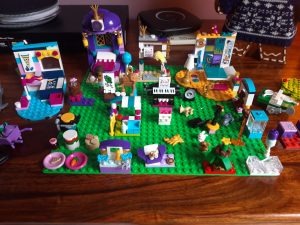
11. Playdates
Your child may be excited or nervous about making new friends when joining school. There are some things you can do to help them prepare for this brand new adventure in friend-making and relationship building.
- Search Facebook for Reception Starters groups for your area. They are quite common, and you can virtually ‘meet’ many fellow parents and their children. It may help your child to see pictures of their new classmates. You could also arrange playdates before starting school so they feel more comfortable on their first day that they know someone.
12. Establish a daily routine / a good bedtime routine
The daily routine will become more important than ever when your child starts school.
- You could draw a diagram explaining their school day and in what order / what time things happen. Some parents swear by trying to settle in to a ‘school day’ routine of early nights and early mornings a few weeks before school actually starts so it’s not too much of a shock when it actually happens.
- You could practise doing the school run together so you can time how long it takes and familiarise yourself with the route. Vicki (Blossom Education) found it easier to introduce her daughter to the school run as her other daughter was already at school. ‘My youngest daughter started reception in September 2019. Her older sister was already at the school, so part of our preparation was simply explaining things to her on the school run. She knew to say good morning and thank the lollipop man. Arriving on the playground, she knew where each class needed to line up. Importantly, she was also aware of the morning playground routine of waiting for the bell to ring, the teacher to come out and then walking into school.’
- Some parents like to increase their child’s pre-school hours so they can get used to a full school day routine prior to starting school. Jennifer (Rice Cakes and Raisins) says ‘My little one is starting in September. I’ve gradually increased his hours at preschool to help him get used to doing the longer days.’ Jo (A Rose-Tinted World) is sending her child to the same nursery at the school ‘ to get her used to the discipline and environment’.
- Establishing a good bedtime routine is very important so your child can get a good nights sleep. The sleep council have good advice on how much sleep your child needs. A child starting school should be getting around 10-12 hours per night.
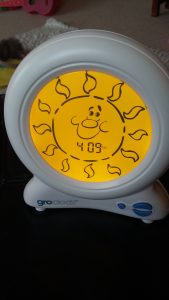
13 Get everything you need
No sooner has your child received confirmation of their school place, then it is time to start thinking about what they need for school.
- Check with the school about what school uniform they will be expected to wear. Supermarkets often do discounts at certain times, and schools sometimes also have a second hand sale for school uniform. How much of each item do you need to buy? Ask other parents how many they have in their wardrobe and get used each week so you can make an estimate for your own child.
- Your child may also need some new accessories. You could pick a new lunch bag and water bottle to take to school. Will they need a pencil case? Will they need a book bag? Little C has already chosen some keyrings to accessorise her book bag! (Very exciting).
- Get school shoes as close to their starting date as possible. Children’s feet as we know grow sporadically and we don’t know what size they will be. Again, check with the school what shoes they expect the children to be wearing so you know what to buy.
- You will need to label items and clothes that your child takes to school. We swear by stickers from ‘My NameTags’ (see here for a review and link). They are easy to stick on, and go through the dishwasher and washing machine with no problem. You even get to pick your own design!
14. Be Supportive
As always, you are your child’s rock. How can you help them transition to primary school?
- Talk about what to expect. Listen to any worries or questions they have, and quell any anxieties.
- Find out from the school about what happens on the first day, what they will learn, be expected to know etc, meet the teachers and ask for a tour of the school if you haven’t had one already.

15. Have fun
The most important thing is to have as much fun and make the experience as exciting and stress-free as possible.
- Cherish the time you have together. Enjoy time together at home before school starts. There won’t be as much chance to enjoy time together once your child is in school and going in from 9am-3pm each day! But, on the flip side, you may even get to see the bottom of the washing basket sometime soon! Charlotte (Team Stein) used to have a day each week in the time leading up to her son’s first day at school where they had a picnic and a play. ‘We called this ‘Mummy and Me Day’ He still remembers and often chats about the little adventures we had.
- Enjoy this right of passage. The first day of school is an exciting and important step for any child! You could make a scrapbook together with hand-drawn pictures and your child’s favourite activities, friends, thoughts and feelings. You could even include articles from newspapers to show what was happening in the world during this year. This will make a nice reminder for them so they can reminisce about their first day of school and when they were young!
- Most importantly, don’t compare your child’s progress to others. Children learn at different rates and we should celebrate and praise what they are doing rather than what they aren’t. Lisa (The Family Ticket) points out: ‘As far as learning goes every child is different and also at a different age too. There’s a lot of pressure these days. My son is one of the youngest in his year and you can tell when comparing him to the older ones. Luckily I have an older son so I’m a lot more laid back this time. They’ll all get there when they’re ready.
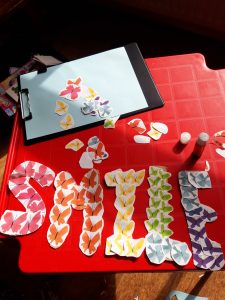
So, as we’ve seen, there is lots you can bear in mind to do with your child to help them prepare their first day of school. What have you been doing? What is your child looking forward to the most about starting school? Let us know your thoughts and ideas by joining in the conversation on our Facebook, Twitter and Instagram pages and by leaving a comment below. Good luck for all school starters this year!
Thanks to the following bloggers who contributed ideas towards this blog, please do check their pages out for some wonderful content from a parent’s point of view.
- Jo (A Rose-Tinted World)
- Sarah Hurst (Arthurwears)
- Jessica (Beauties & The Bibs)
- Vicki (Blossom Education)
- Lianne (Life with Lianne)
- Josie Cornhill (Me, Them and the Others)
- Laura (Mummy Lauretta) *twins specialism*
- Clare (My Money Cottage)
- Bethanie Wardell (Northumberland Family Diaries)
- Jennifer (Rice Cakes and Raisins)
- Charlotte (Team Stein)
- Lisa Hoad (The Family Ticket)
- Vicki Coombe (Tippy Tupps)
- Anna (Twins and Travels) *twins specialism*

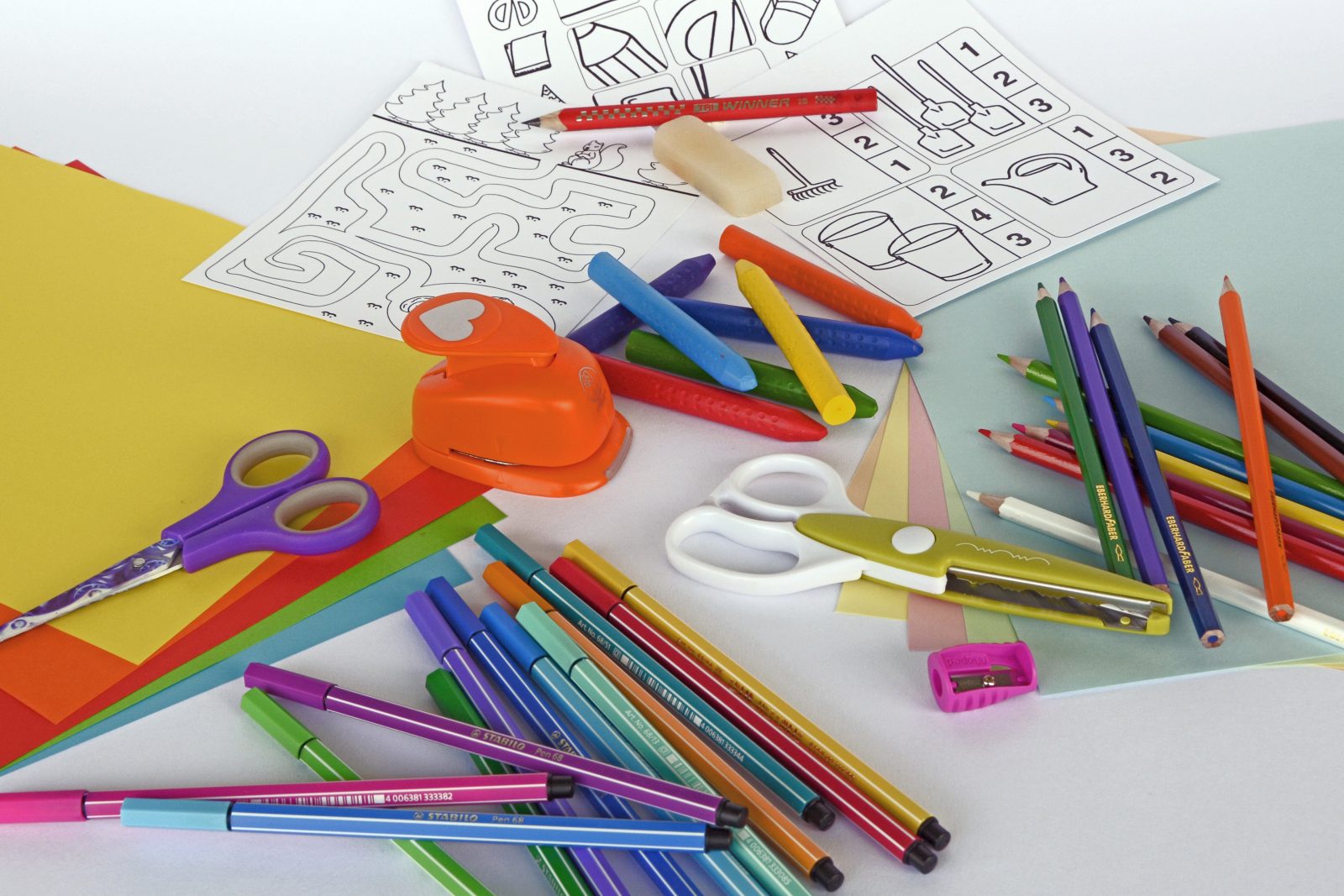
Your tips are music to my ears as a primary school teacher. Developing routines and independence in the run up to starting school is just crucial and really helps the transition to this milestone.
Thank you for this, my eldest is starting in September and I’ve been worrying she’s not ready or won’t be able to do something obvious. The list from the primary school was so short! But I think she’s there with most things on yours so hopefully she’ll be ok 🙂
What a great list in preparation for school. Thank you for featuring our ‘Mummy and me day‘ ☺️
Very nice article, thanks for sharing it with us.